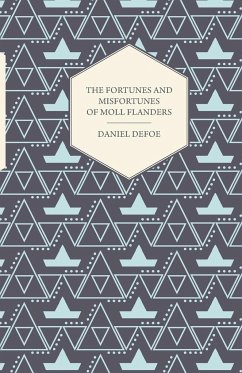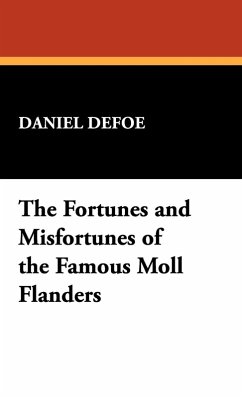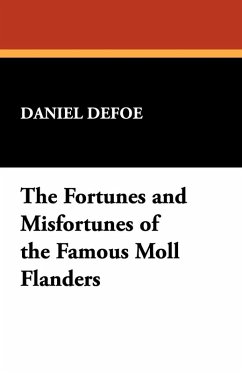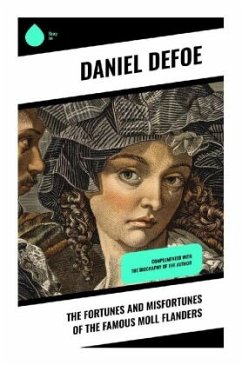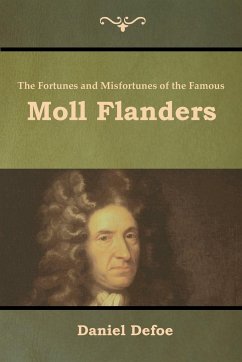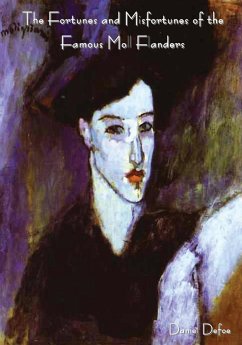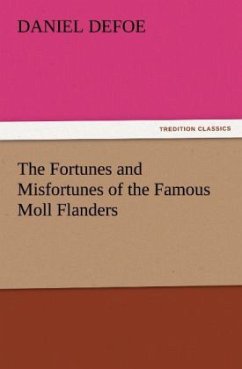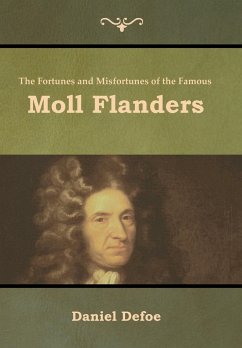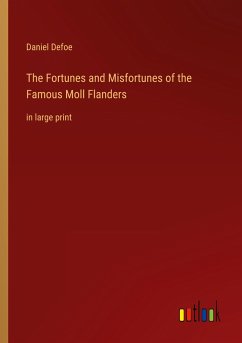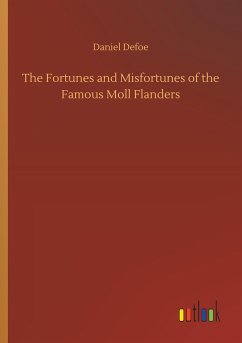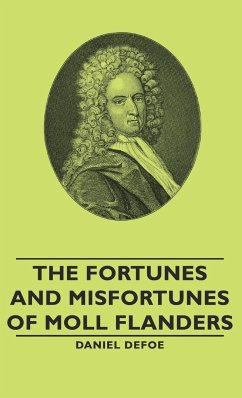
The Fortunes and Misfortunes of Moll Flanders
Versandkostenfrei!
Versandfertig in 1-2 Wochen
38,99 €
inkl. MwSt.
Weitere Ausgaben:

PAYBACK Punkte
19 °P sammeln!
This book contains Daniel Defoe's seminal 1722 novel, "The Fortunes and Misfortunes of the Famous Moll Flanders". It purports to be a factual account of Moll Flanders's life from birth until death, and recounts the experiences of a woman who, in her life of but thirty years, was "twelve year a whore, five times a wife (whereof once to her own Brother), twelve year a thief, eight year a transported felon in Virginia, at last grew Rich, liv'd Honest, and died a Penitent." This volume would constitute a worthy addition to any bookshelf, and it is highly recommended for fans and collectors of Defo...
This book contains Daniel Defoe's seminal 1722 novel, "The Fortunes and Misfortunes of the Famous Moll Flanders". It purports to be a factual account of Moll Flanders's life from birth until death, and recounts the experiences of a woman who, in her life of but thirty years, was "twelve year a whore, five times a wife (whereof once to her own Brother), twelve year a thief, eight year a transported felon in Virginia, at last grew Rich, liv'd Honest, and died a Penitent." This volume would constitute a worthy addition to any bookshelf, and it is highly recommended for fans and collectors of Defoe's work. Daniel Defoe (1660 - 1731) was an English writer, journalist, trader, and spy. Other notable works by this author include "Robinson Crusoe" (1719), and "Roxana: The Fortunate Mistress" (1724). Many vintage texts such as this are increasingly scarce and expensive, and it is with this in mind that we are republishing this book now, in an affordable, high-quality, modern edition. It comes complete with a specially commissioned biography of the author.





